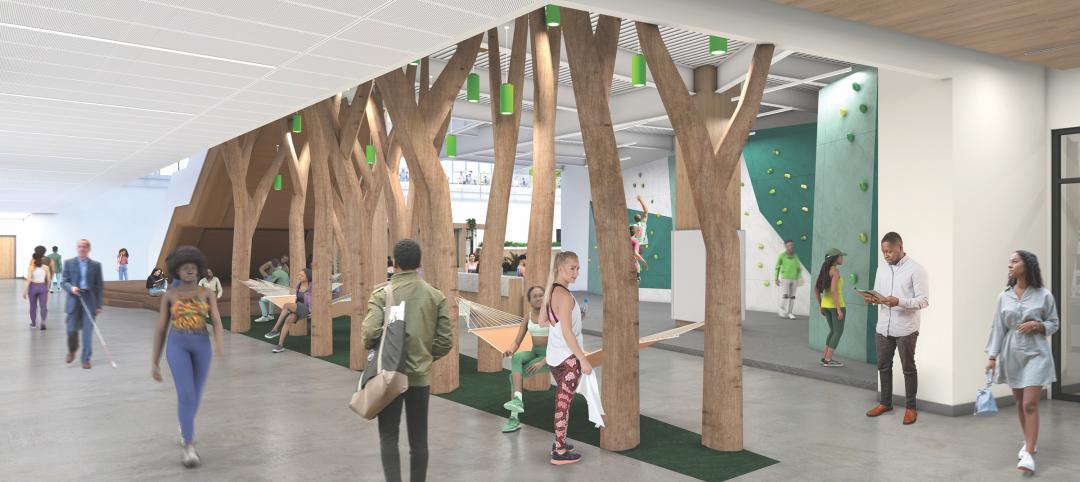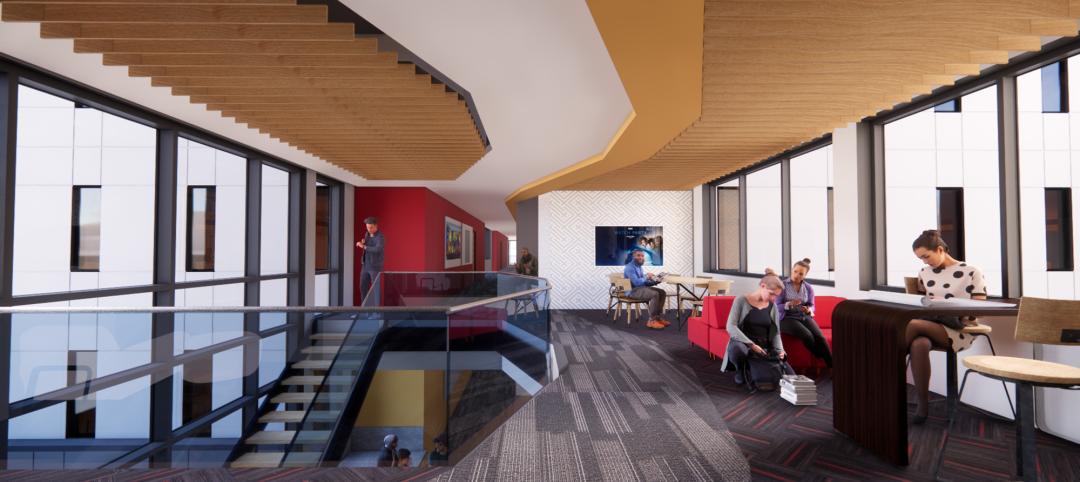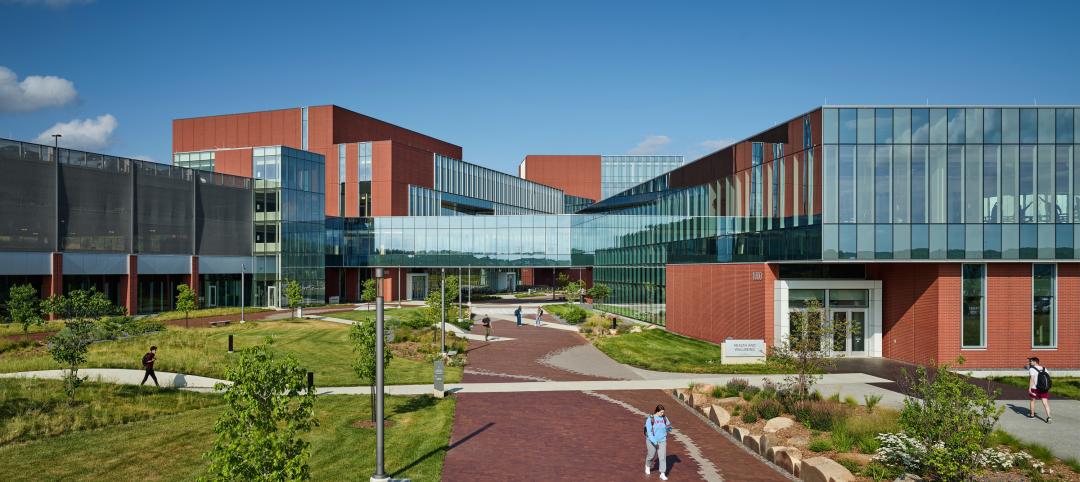In the construction industry, jobs are hard to come by. But a June report released by the Associated General Contractors of America (AGC) indicates that--at least in some states--it’s getting easier. In the report, the AGC finds that 20 states added new construction jobs.
According to AGC data, states with highest percentage of job gains are Montana and Wyoming which posted 12-month growth rates of 15.2% and 13.7%, respectively. At the opposite end of the spectrum are Alaska and Wisconsin with respective losses of 20% and 10.6%.
To find out what’s driving these job losses and gains, I recently caught up with AGC’s Chief Economist, Ken Simonson. In my conversation with Simonson, he highlighted three main drivers behind the current trends in construction employment:
- Low vacancy rates are spurring investment in apartment complex construction.
- The acceleration of natural gas extraction is fueling related construction job growth.
- Manufacturing investment is leading to new manufacturing facility construction.
So what kinds of jobs fit well with these market drivers? Below I’ll profile a few relevant professions currently in demand.
Apartment Complex Construction: Apartment construction requires nearly every kind of construction trade on the job. However, there are a few particular positions that are particularly high demand.
Carpenter: Naturally, carpenters are in high demand as more complexes are built and they’re needed for everything from framing to setting crown molding.
Millwork: The millwork trade is in high demand to produce the doors, crown moldings, window casings, etc. needed to finish an apartment.
Electrician: Electricians that are familiar with multi-family electrical wiring and know how to run standard power distribution to lighting and other outlets in apartments are needed to provide power to an apartment.
Natural Gas Extraction: The growth in natural gas extraction from underground shales is also supporting new construction jobs. The majority of these jobs involve heavy construction or civil engineering.
Earthwork and Excavation: The earthwork industry is needed on natural gas extraction for everything from mining the minerals that are used in extraction to clearing roadway to the drill site.
Civil Engineering: Of course, effectively planning these roadways requires civil engineers that can plan the infrastructure of these projects.
Manufacturing Facilities: Construction jobs are also being supported by the uptick in domestic manufacturing, which is prompting manufacturers to build new facilities in the U.S. As a result, there are two main professions that are in high demand.
Iron Workers: Iron work professionals are needed to put together the large steel frames that facilities require. Within the iron work profession, welders are among the most in demand professions as certified welders are hard to find given that it can take several years to achieve certification.
Electrician: Commercial electricians are needed when constructing a new manufacturing facility because of the need to install power and controls to motors and HVAC systems at the facility--in addition to the need to run power distribution directly from an electrical grid.
If you’re interested in learning more about how these jobs (and skills) fit into the trends I highlighted above, please stop by Software Advice to check out my original article and leave your thoughts here. +
Related Stories
Construction Costs | Oct 16, 2024
Construction Crane Index: Most major markets’ crane counts increase or hold steady in third quarter
Rider Levett Bucknall’s (RLB’s) latest Crane Index and Quarterly Cost Report shows continued decreasing cost inflation and crane counts increasing or holding steady in 10 of the 14 major markets it surveyed. The national average increase in construction costs was 1.07%, the lowest it’s been in the last three years.
AEC Tech | Oct 16, 2024
How AI can augment the design visualization process
Blog author Tim Beecken, AIA, uses the design of an airport as a case-study for AI’s potential in design visualizations.
University Buildings | Oct 15, 2024
Recreation and wellness are bedfellows in new campus student centers
Student demands for amenities and services that address their emotional and mental wellbeing are impacting new development on college campuses that has led to recreation centers with wellness portfolios.
Higher Education | Oct 14, 2024
Higher education design for the first-gen college student
In this Design Collaborative blog, Yogen Solanki, Assoc. AIA, shares how architecture and design can help higher education institutions address some of the challenges faced by first-generation students.
Performing Arts Centers | Oct 10, 2024
Studio Gang's performing arts center for Hudson Valley Shakespeare breaks ground
A new permanent home for Hudson Valley Shakespeare, a professional non-profit theater company, recently broke ground in Garrison, N.Y. The Samuel H. Scripps Theater Center includes a 14,850 sf performance venue that will serve as a permanent home for the theater company known for its sweeping open-air productions of classics and new works.
Sustainable Design and Construction | Oct 10, 2024
Northglenn, a Denver suburb, opens a net zero, all-electric city hall with a mass timber structure
Northglenn, Colo., a Denver suburb, has opened the new Northglenn City Hall—a net zero, fully electric building with a mass timber structure. The 32,600-sf, $33.7 million building houses 60 city staffers. Designed by Anderson Mason Dale Architects, Northglenn City Hall is set to become the first municipal building in Colorado, and one of the first in the country, to achieve the Core certification: a green building rating system overseen by the International Living Future Institute.
3D Printing | Oct 9, 2024
3D-printed construction milestones take shape in Tennessee and Texas
Two notable 3D-printed projects mark milestones in the new construction technique of “printing” structures with specialized concrete. In Athens, Tennessee, Walmart hired Alquist 3D to build a 20-foot-high store expansion, one of the largest freestanding 3D-printed commercial concrete structures in the U.S. In Marfa, Texas, the world’s first 3D-printed hotel is under construction at an existing hotel and campground site.
University Buildings | Oct 9, 2024
Des Moines University Medicine and Health Sciences opens a new 88-acre campus
Des Moines University Medicine and Health Sciences has opened a new campus spanning 88 acres, over three times larger than its previous location. Designed by RDG Planning & Design and built by Turner Construction, the $260 million campus features technology-rich, flexible educational spaces that promote innovative teaching methods, expand research activity, and enhance clinical services. The campus includes four buildings connected with elevated pathways and totaling 382,000 sf.
Student Housing | Oct 9, 2024
University of Maryland begins work on $148 million graduate student housing development
The University of Maryland, in partnership with Campus Apartments and Mosaic Development Partners, has broken ground on a $148.75 million graduate student housing project on the university’s flagship College Park campus. The project will add 741 beds in 465 fully furnished apartments.
Healthcare Facilities | Oct 9, 2024
How healthcare operations inform design
Amanda Fisher, Communications Specialist, shares how BWBR's personalized approach and specialized experience can make a meaningful impact to healthcare facilities.

















